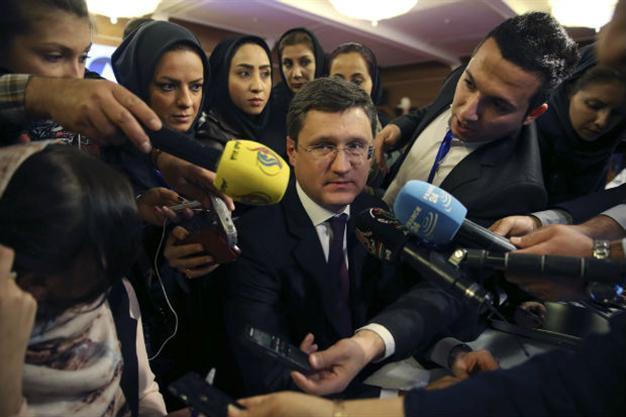Russia says talks suspended with Turkey on Turkish Stream pipeline
MOSCOW - Agence France-Presse

AP photo
Russia and Turkey, at loggerheads since Ankara shot down a Russian warplane last week, have suspended talks on their joint Turkish Stream project to pipe gas to Turkey and southern Europe, Russia’s energy minister said on Dec. 3.“Currently talks are suspended,” Energy Minister Alexander Novak said, quoted by RIA Novosti state news agency. “Work on formulating agreements on Turkish Stream is suspended,” particularly because “an intergovernmental commission on trade and economic cooperation has stopped meeting” under Russia’s retaliatory measures against Ankara, Novak said. However, he said talks on building a nuclear power plant in Turkey remained open, Reuters reported.
This would allow Russia to achieve its goal of delivering gas to Europe while avoiding Ukraine.
Russian President Vladimir Putin announced the plan for the Turkish Stream pipeline in December 2014, after Russia junked its South Stream joint venture with EU firms, which would have taken gas to southern Europe and Bulgaria.
The head of Russia’s state gas giant Gazprom, Alexei Miller, told journalists earlier Dec. 3 that Turkey would have to ask Russia to renew talks on Turkish Stream.
“If Turkey considers it needs this project, it can contact us,” RIA Novosti quoted Miller as saying.
Gazprom in early October said that the pipeline project would be delayed as tensions heightened after Russia launched airstrikes against Islamic State and other targets in Syria, with its planes several times violating Turkish airspace.
In June, Gazprom agreed with Anglo-Dutch Shell, Germany’s E.ON and Austria’s OMV to build another gas pipeline called Nord Stream-2 to Germany, backing up an existing Nord Stream pipeline under the Baltic Sea.
















